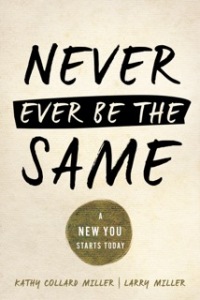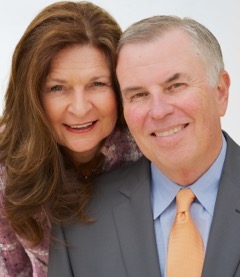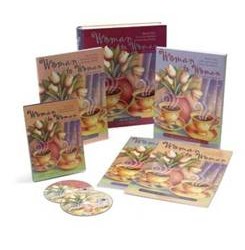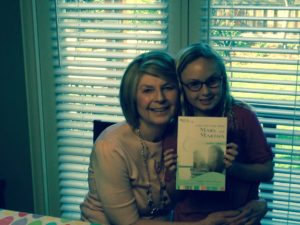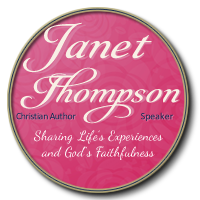Kathy Collard Miller and her husband Larry Miller are the authors of a book I recently endorsed, Never Be The Same. I asked the Millers if they would share with you how some of the principles they discuss in their book could be applied to mentoring. I was delighted when I saw that they chose the topic of asking questions because that is the same advice and training I give to mentors. Instead of lecturing or trying to get the mentee to see things our way, questions can help the mentee arrive at her own conclusions. In my Bible study, Face-to-Face with Naomi and Ruth: Together for the Journey, Session Three, Day Four is on “Asking Questions.” This method works well for parents too.
Effective Mentors Ask Questions
by Kathy Collard Miller and Larry Miller
One of the many goals of mentoring is helping our mentee identify her motive for the choices she makes. All of us react, respond, and choose based on our desires and wants, or what we think will prevent emotional or physical pain. Helping our mentee to recognize motives is a challenge.
[Tweet “Be an effective mentor by asking questions.”]
We are lay-counselors, and as we help people make wise and godly choices, we’ve noticed that long-range change occurs with a heart transformation, not just mental assent. We have also been counseled and mentored, and appreciated the counselor or mentor who asked questions that helped us identify our motives and what we hoped to gain.
[Tweet “Mentees can choose a heart transformation.”]
Why We Wrote Never Ever Be the Same
[Tweet “Why We Wrote Never Ever Be the Same http://amzn.to/1ITmLfy @KathyCMiller”]
We wrote Never Ever Be the Same, to help people discover why they make the choices they do. Rather than encourage them to grit their teeth and vow to be better, we want them to have a deep spiritual change where they trust in God—not self-effort.
Asking Questions More than Giving Advice
[Tweet “Tweet: Ask questions rather than offer advice.”]
Asking questions rather than giving advice helps your mentee to get in touch with her motivations. If you only give advice, your mentee could depend upon you for her power rather than having a heart for God. It can be difficult to think of the questions to ask.
[Tweet “It’s difficult to think of questions to ask as we mentor.”]
Although we don’t provide a list of questions in our book, we do give examples of how we use questions with those we mentor.
Questions to Use While Mentoring
[Tweet “Here are some questions to use for mentoring. “]
Here are some questions we ask. These aren’t in any order, but use according to what the mentee is telling you. Then ask more questions based upon the mentee’s answers or response:
- What did the other person’s reaction seem to say about you?
- What if you didn’t keep doing that? What do you fear would happen?
- What is God inviting you into through allowing these circumstances?
- What would you like to say to that person who hurt you?
- Why do you believe that’s true when other people have told you it’s not?
- What were you hoping or longing for?
- What do you feel is lacking in your life?
- What does that choice provide for you?
- What were you saying about yourself during the time that hurtful thing happened?
- How does your behavior leave out God in your life?
- How does that behavior protect you from some kind of harm or pain?
- Everything is a choice. Why are you choosing that destructive behavior: to gain something or protect yourself from something?
- What does your choice say about who God is?
- What does your behavior or choice indicate is your belief about God, life, or other people?
Learning to use these questions may take time. Asking them may not bring instant change to your mentee. But the Holy Spirit can use the mentee’s new sense of self-awareness to reveal wrongly motivated thinking and choices. That kind of heart transformation will have long-range benefits.
Share a question that you have found useful in mentoring that the Holy Spirit used to bring a heart change in your mentee.
Leaving any comment here will include you in the drawing for a free copy of Never Ever Be the Same: A New You Starts Today by Kathy Collard Miller and Larry Miller.
Kathy Collard Miller is the author of 50 books and an international speaker. Kathy and her husband, Larry, have been married 44 years and he is a retired police lieutenant who speaks and writes. Larry and Kathy often speak together. They live in Southern California, and have two grown children and one grandson. Visit them at www.LarryAndKathy.com and www.KathyCollardMiller.com.
Never Ever Be the Same: A New You Starts Today (Leafwood Publishers) offers Christians hope that they can change their destructive patterns of behavior through identifying their sinful self-protective strategies and then being empowered to trust God instead. Their book includes biblical principles, insightful stories, and helpful instruction. It also provides discussion questions for individuals or groups.
Never Ever Be the Same is available at your local Christian bookstore and in both print and digital versions. Even though you may find Never Ever Be the Same can only be pre-ordered on some online bookstores, if you pre-order, your cost may be less when they mail it to you.

